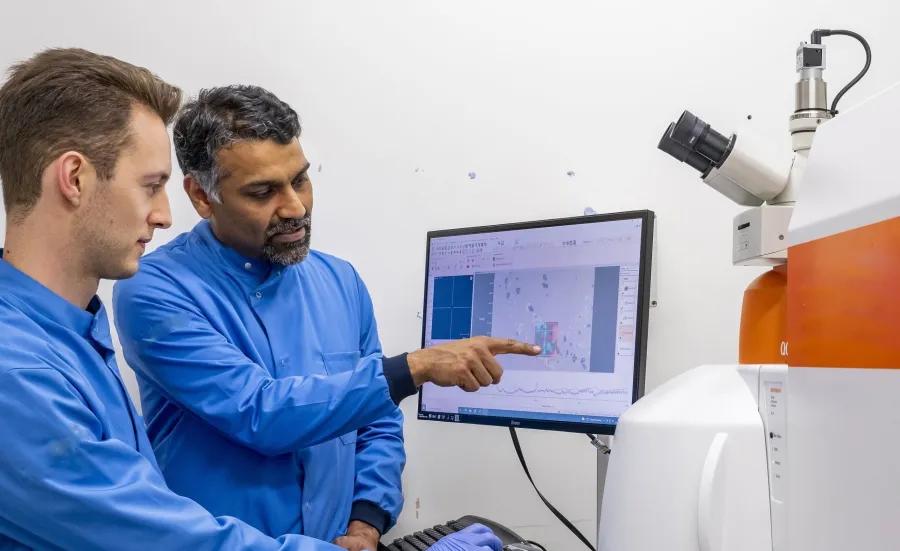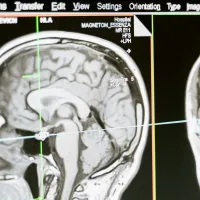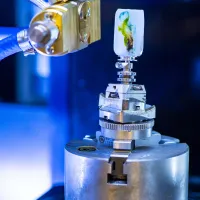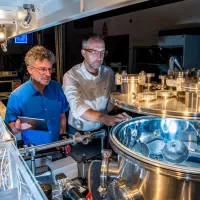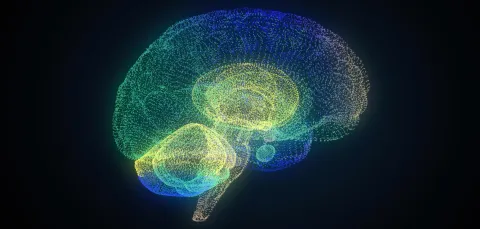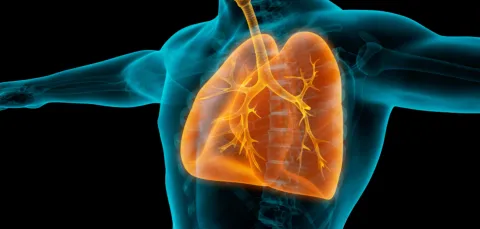Diagnosing dementia
There are more than 982,000 people living with dementia in the UK and that figure is expected to rise to 1.4 million by 2040. There are many different types of the condition, such as Alzheimer’s disease and vascular dementia, and main symptoms include memory loss, difficulty in concentration, confusion, mood changes and language and problem-solving skills.
Early diagnosis of dementia is difficult, and it often takes more than two years using current diagnostic methods. Distinguishing between different dementia types is another challenge. Many people don’t receive a diagnosis until a much later stage of the disease when treatment options are less effective.
The new test is based on Multi-excitation Raman spectroscopy (MX-Raman) and allows scientists to use a laser to examine the fluid and look for changes in the proteins, lipids, sugars and other biomolecules. It is much cheaper than other currently available diagnostic tests and could also be made available directly in a clinic setting.
The study, led by Professor of Molecular BioPhotonics and Imaging Sumeet Mahajan and Professor Chris Kipps, from UHS, says the development is a ‘breakthrough in medical technology’ with initial results suggesting accuracy of up to 93 per cent.
The project - Holistic Optical Biomarkers to Transform Dementia Diagnosis (HOpE) - is funded by UK Research and Innovation (UKRI) and has assessed 150 patients so far.
Sumeet said: "By the time the symptoms of dementia and other neurological diseases appear it is already too late.”
However, he said that biochemical changes happen many years earlier, which means the test could detect neurological diseases much earlier and get patients onto necessary treatment plans.
Chris added: "If we're talking about prevention then the earlier you can start the better. If you can delay somebody's progression of dementia or the symptoms of dementia, you can prevent them having to be in a nursing home and you can reduce the amount of extra care that they need.
"If we can delay that by five years, we can make a huge impact from an economic point of view and also at an individual and personal point of view."
HOpE is one of 36 projects to receive a share of £32.4m of UKRI funding. The test will go through further validation and miniaturisation over the next couple of years, before entering clinical trials. It is also in the process of being spun-out through Brainalyze Ltd.
Support from the Institute for Life Sciences
Sumeet says the support he and his team have received from the University’s Institute for Life Sciences (IfLS) has been invaluable in enabling them to get to where they are today.
Sumeet said: “I’m so pleased to share the good news of this UKRI funding award which is a result of solid support from the IfLS to build connected interdisciplinary networks across Imaging and Dementia and Ageing”.
The funding is a result of long-term investment from the University into the IfLS whose mission is to encourage and support disruptive, interdisciplinary life science. Community building activities such as the Interdisciplinary Dementia and Ageing Centre (IDEAC) and the IfLS Imaging theme put the University in a strong position to respond to national funding opportunities when they arise.
